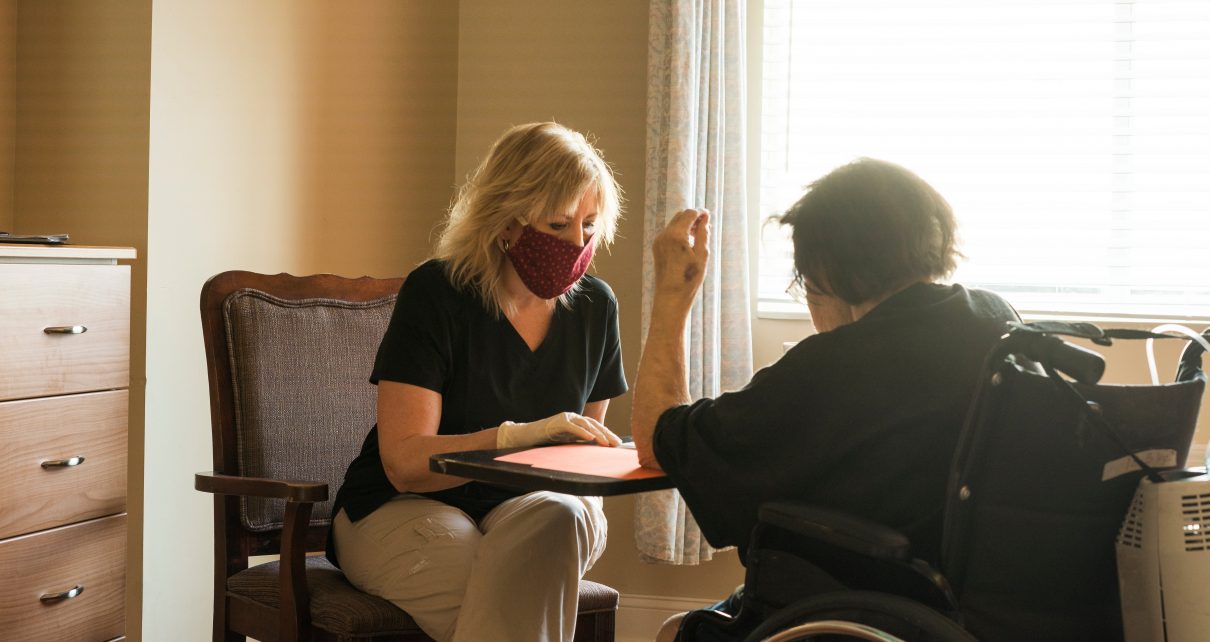Last month, an eternity in COVID-19 time, I indulged in some wishful thinking. I predicted that the virus would lead to a resurgence of progressivism, in which the U.S. moves away from militarism and predatory capitalism and toward a greener, more socialist style of governance. The system I have in mind would be fully democratic, unlike China, and it wouldn’t abolish capitalism, which even China has embraced. It would simply give more to those who need it and take more from those who don’t. I’d like to take a closer look at this possibility, which a bunch of pundits have explored.
The pandemic has “expanded the spectrum of imaginable futures and political possibilities,” journalist Eric Levitz writes in New York Magazine. “And some of those possibilities have been a sight for sore socialists’ eyes.” The virus has validated the core socialist tenet that we are all dependent on each other. “When one nation lacks the public-health infrastructure necessary to contain an infectious disease, the public health of all nations is undermined,” Levitz says. “If millions of Americans cannot afford to stay home from work or access medical care when they are ill, the well-being of all Americans is jeopardized.”
Trump and his Republican allies, Levitz points out, joined Democrats in passing the Coronavirus Aid, Relief, and Economic Security (CARES) Act, a $2 trillion public welfare and healthcare program. “The coronavirus crisis provides a vivid reminder that the state is perfectly capable of sheltering its constituents from the market’s mercilessness,” Levitz says. The question is whether this governmental assistance will be temporary or enduring.
Writing for BBC Future, economist Simon Mair argues that Sars-Cov-2 has exposed the limits of free-market capitalism. This ideology, which has held sway in the U.S. and U.K. since the Reagan and Thatcher regimes, rests on two assumptions. First, Mair explains, the market “delivers a good quality of life, so it must be protected.” Second, the market “will always return to normal after short periods of crisis.” COVID-19 has undermined these beliefs.
Mair hopes that voters and politicians will accept that basic human needs should not be “subject to the whims of the market.” Hence governments should ensure that all citizens have adequate food, housing, healthcare, energy and so on. “There are risks to this approach–we must be careful to avoid authoritarianism,” Mair cautions. “But done well, this may be our best hope against an extreme COVID-19 outbreak. A strong state able to marshal the resources to protect the core functions of economy and society.”
COVID-19 could also promote grass-roots socialism, or what Mair calls “mutual aid,” in which people “organize support and care within their communities” to help people in need. Mair notes that local organizations helped overcome the 2014 Ebola outbreak in West Africa. “We can see this as a failure of state responses,” Mair says. “Or we can see it as a pragmatic, compassionate societal response to an unfolding crisis.”
In an interview on The Intercept, author/activist Naomi Klein asserts that the pandemic “is laying bare the extreme injustices and inequalities of our economic and social system.” According to Klein, the crisis reveals the urgent need for free, universal healthcare and a Green New Deal, paid for with higher taxes on wealthy individuals and corporations.
But while these commentators agree that we should shift leftward, they’re not confident that we will. Just as I worried recently that the pandemic might make the world more cruel and unjust, so have some of the writers quoted above. Naomi Klein acknowledges that socialism is still a hard sell in the U.S., and that we might be “catapulted backwards to a more brutal winner takes all system” as a result of Sars-Cov-2.
Eric Levitz, similarly, warns that if the coronavirus “has provided cause for bullishness on democratic socialism, it’s offered at least as much reason to believe the future belongs to tribalistic barbarism.” Northern European nations ignored pleas for medical supplies and other assistance from Italy, Levitz points out, and in the U.S. the CARES act excludes undocumented immigrants, who constitute 5 percent of the workforce.
Simon Mair, too, fears a descent into “barbarism.” After the current period of high spending, he says, governments might curtail or eliminate basic public services. Such harsh “austerity” measures could lead to “the collapse of both state and community welfare systems.” In this scenario, “businesses fail, and workers starve because there are no mechanisms in place to protect them from the harsh realities of the market. Hospitals are not supported by extraordinary measures, and so become overwhelmed. People die.”
I prefer a recent analysis by New York Times reporter Donald McNeil (one of my favorite professors when I was in journalism school in the early 1980s). After a sobering overview of how difficult it will be to vanquish Sars-Cov-2, MacNeil ends on an upbeat note, pointing out that the U.S. adopted socialist policies after World Wars I and II. “Society and incomes became more equal,” McNeil writes. “Funds created for veterans’ and widows’ pensions led to social safety nets, measures like the G.I. Bill and V.A. home loans were adopted, unions grew stronger, and tax benefits for the wealthy withered.”
MacNeil adds that if scientists produce an effective vaccine and treatment for the coronavirus, “many Americans may become less suspicious of conventional medicine and more accepting of science in general–including climate change… The blue skies that have shone above American cities during this lockdown era could even become permanent.” Yes, for us to flourish, we must be kinder to nature as well as each other. Let’s make these wishes for a better world come true.
Further Reading:
Does Surging Existential Dread Help Trump?
The Coronavirus and Right-Wing Postmodernism
Illness Gives Pandemic Scholar Insight into Botched COVID-19 Response
How We Can Avert Climate Apocalypse
Meta-Post: Horgan Posts on Poverty and Other Social Problems
See also my free, online book Mind-Body Problems: Science, Subjectivity & Who We Really Are.



